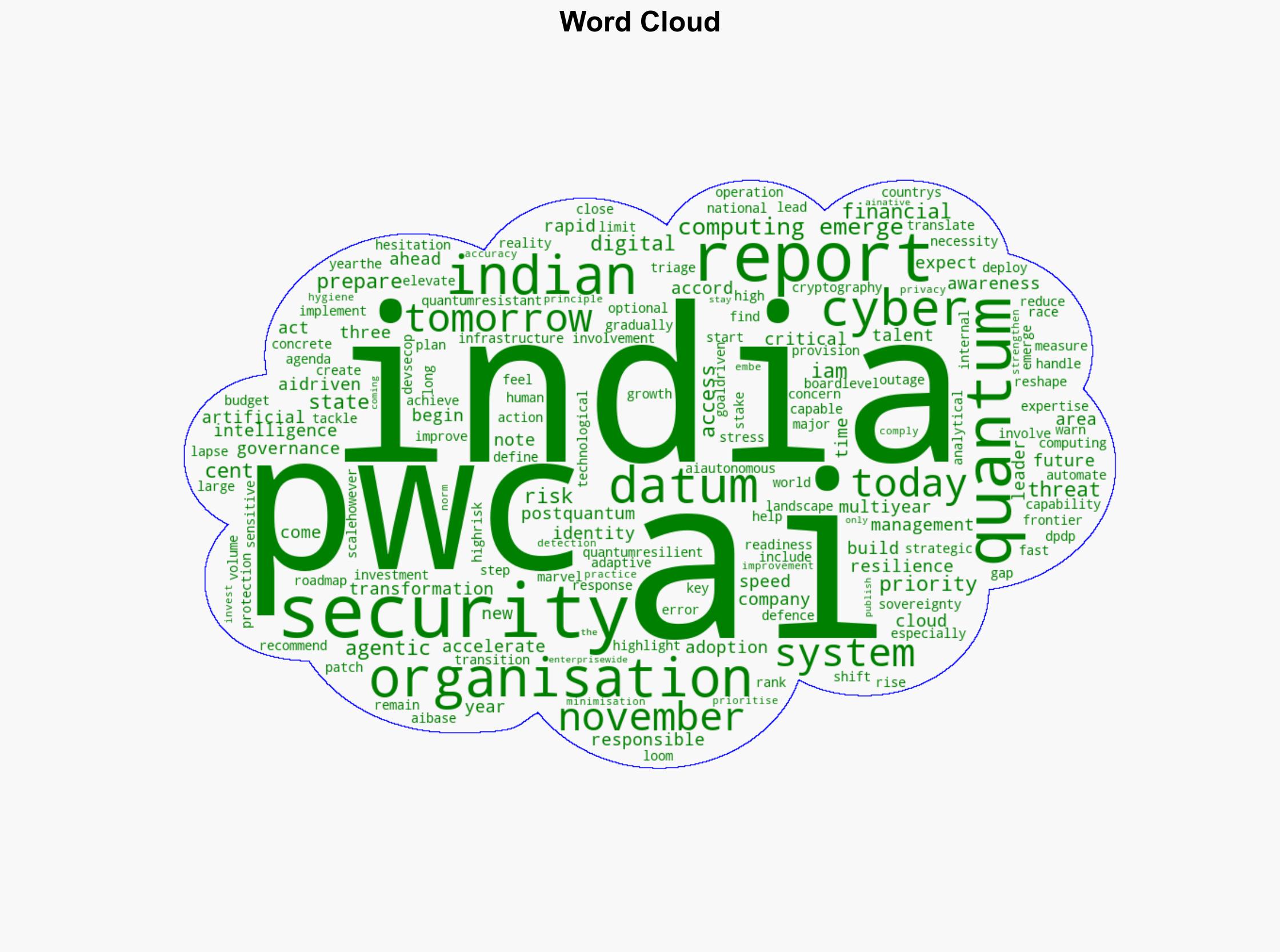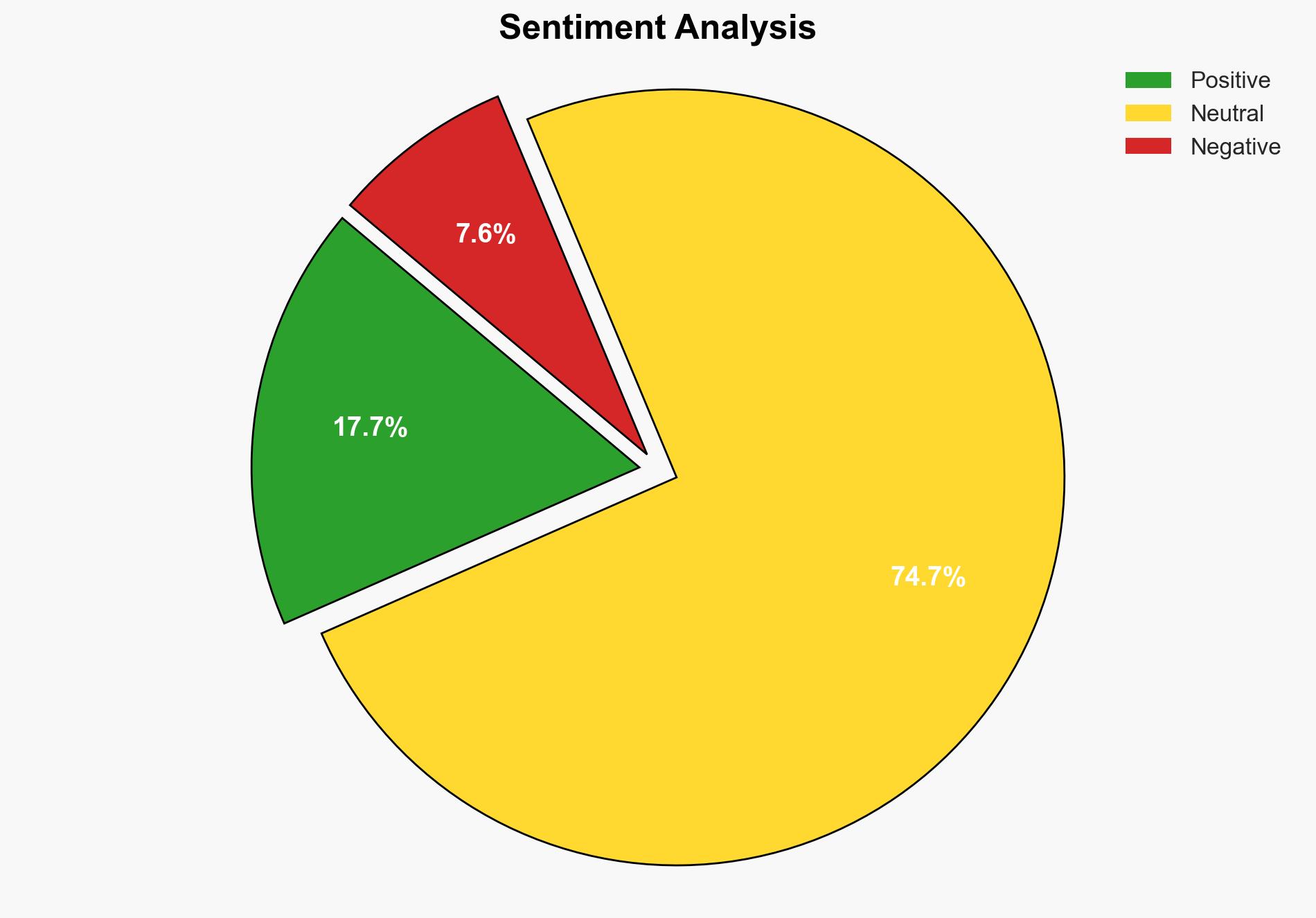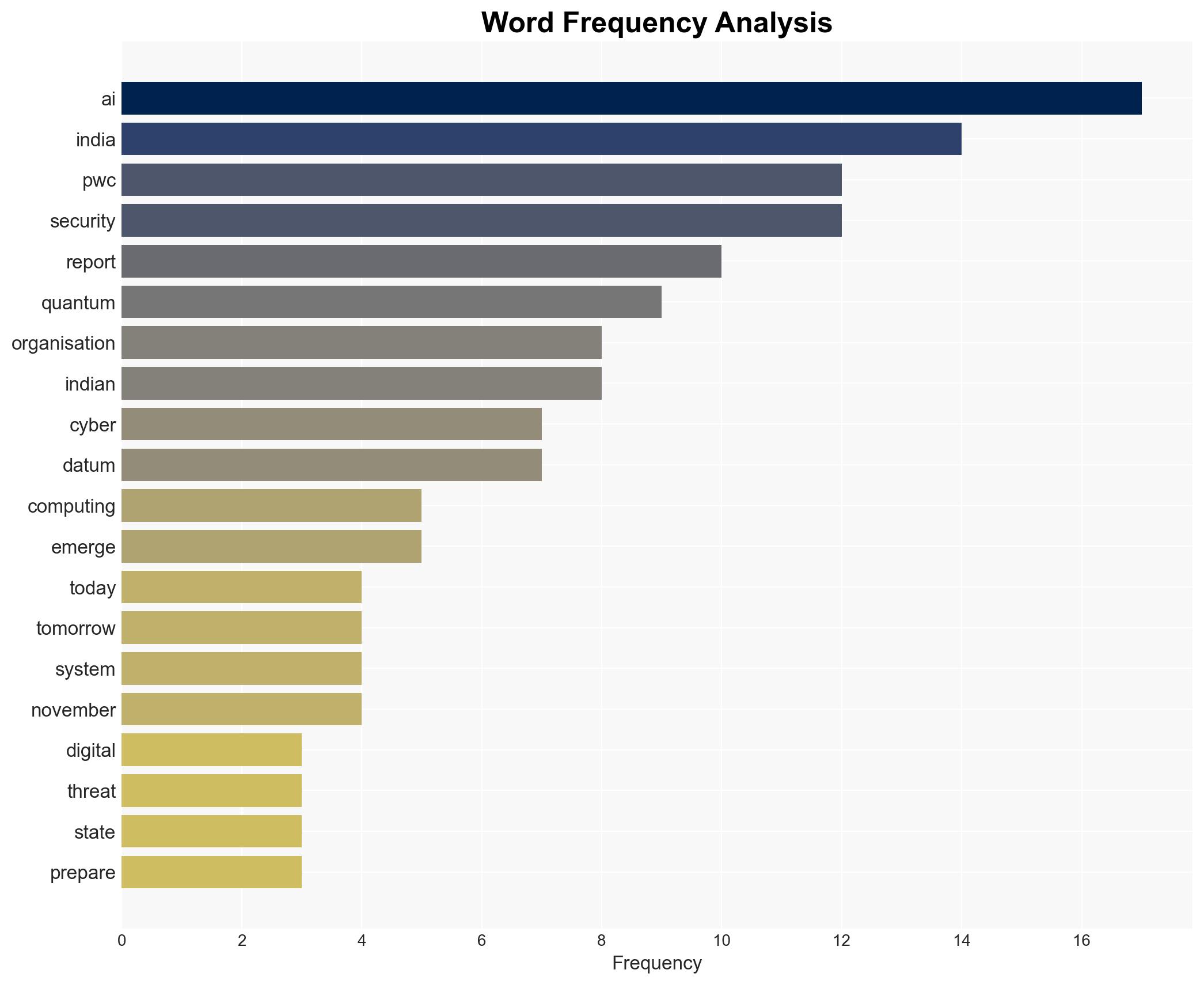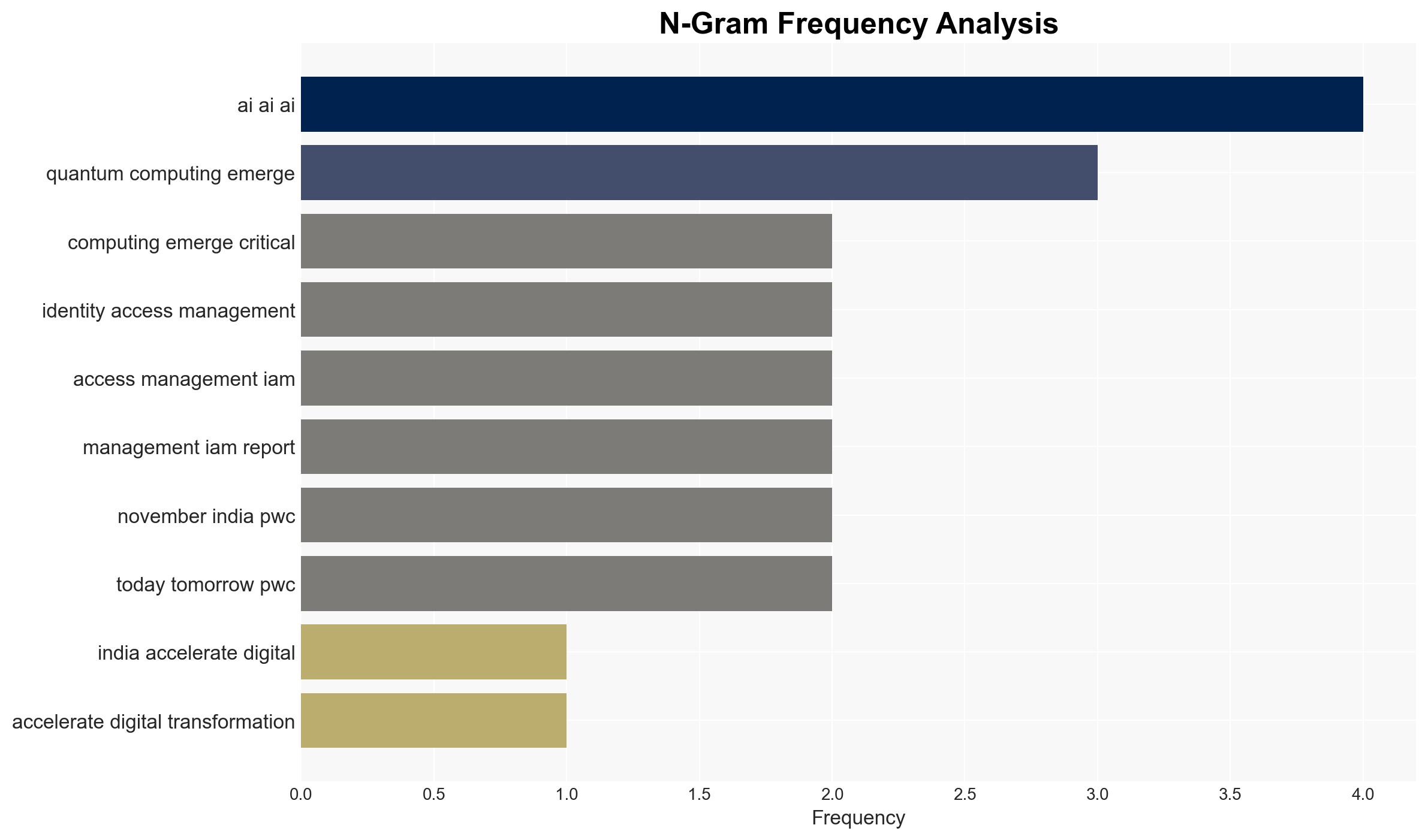India needs urgent quantum-ready cyber security as organisations continue to lag PwC – BusinessLine
Published on: 2025-11-18
AI-powered OSINT brief from verified open sources. Automated NLP signal extraction with human verification. See our Methodology and Why WorldWideWatchers.
Intelligence Report:
1. BLUF (Bottom Line Up Front)
The strategic judgment is that India must prioritize quantum-ready cybersecurity to safeguard its digital transformation efforts. The most supported hypothesis is that the current pace of adaptation to quantum threats is insufficient, necessitating immediate action to integrate quantum-resilient measures. Confidence Level: Moderate. Recommended action includes accelerating the implementation of quantum-resistant security measures and elevating quantum risk to a board-level agenda.
2. Competing Hypotheses
Hypothesis 1: India is adequately preparing for quantum computing threats, and the current pace of adaptation is sufficient to meet future challenges.
Hypothesis 2: India is not adequately preparing for quantum computing threats, and the current pace of adaptation is insufficient, leaving the country vulnerable to future cyber threats.
Assessment: Hypothesis 2 is more likely given the evidence that only a small percentage of Indian organizations have begun implementing quantum-resistant measures, and quantum readiness is not yet a budget priority for most. The urgency expressed in the PwC report further supports this hypothesis.
3. Key Assumptions and Red Flags
Assumptions: It is assumed that quantum computing will become a significant threat within the next few years, necessitating immediate action. There is also an assumption that current cybersecurity measures are inadequate against future quantum threats.
Red Flags: A potential bias exists in the report’s emphasis on urgency, possibly driven by PwC’s interest in promoting its consultancy services. Additionally, the low percentage of organizations prioritizing quantum readiness could indicate a lack of awareness or underestimation of the threat.
4. Implications and Strategic Risks
The primary implication is the potential vulnerability of India’s digital infrastructure to quantum-enabled cyber attacks, which could lead to significant economic and informational disruptions. Strategic risks include the possibility of falling behind in global cybersecurity standards, which could impact international trade and diplomatic relations. There is also a risk of increased cyber espionage and data breaches as adversaries exploit quantum computing capabilities.
5. Recommendations and Outlook
- Actionable Steps:
- Accelerate the development and implementation of quantum-resistant cryptographic systems.
- Incorporate quantum risk into national cybersecurity strategies and elevate it to a board-level agenda.
- Invest in building internal expertise and talent in quantum computing and cybersecurity.
- Outlook:
- Best Scenario: Rapid adaptation to quantum threats, leading to enhanced cybersecurity and competitive advantage.
- Worst Scenario: Failure to adapt, resulting in significant cyber breaches and economic losses.
- Most-likely Scenario: Gradual improvement in quantum readiness, with some vulnerabilities persisting in the short term.
6. Key Individuals and Entities
No specific individuals are mentioned in the source text. Key entities include PwC India and Indian organizations involved in digital transformation.
7. Thematic Tags
Cybersecurity, Quantum Computing, Digital Transformation, Risk Management
Structured Analytic Techniques Applied
- Adversarial Threat Simulation: Model and simulate actions of cyber adversaries to anticipate vulnerabilities and improve resilience.
- Indicators Development: Detect and monitor behavioral or technical anomalies across systems for early threat detection.
- Bayesian Scenario Modeling: Quantify uncertainty and predict cyberattack pathways using probabilistic inference.
Explore more:
Cybersecurity Briefs ·
Daily Summary ·
Support us
·





